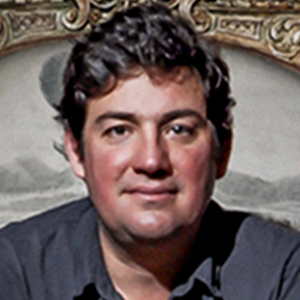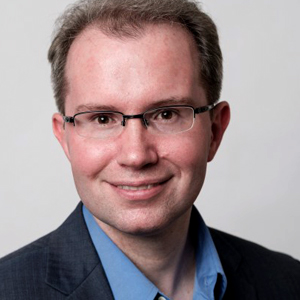
David is executive director of People-Centered Internet, an international coalition embodying the belief that the internet can bring different groups of people together to form living learning communities focused on education, economic opportunity, and growth of communities through communication. He also serves as a faculty member at Singularity University, giving talks on impact and disruption, and guest-lectures at both Harvard and Oxford Universities. In 2017, he was selected as a Marshall Memorial Fellow, focusing his fellowship on transatlantic issues of common concern, including exponential technologies and the global future ahead. In 2016, the World Economic Forum named David to its class of Young Global Leaders—people under the age of 40 who are changing the world.
David started out in tech at age 15, working on computer simulations for the Department of Energy. He had his first military security clearance before he turned 18. He has held an array of academic and public service positions since. In 2013, he was named chief information officer of the Federal Communication Commission (FCC), where he started an ambitious project to bring the FCC’s infrastructures to a cloud-based system. David also served as IT chief for the Bioterrorism Preparedness and Response Program at the US Centers for Disease Control and Prevention, leading the program’s technology response to 9/11 and other international public health emergencies.
I am most excited to work on projects that… others say are “near impossible” or claim are too messy or complicated to succeed.
I am looking for partners that can help me… empower positive #ChangeAgents to be aware of our rapidly changing world, to include both the opportunities and threats that have arisen.
A moment when I felt most inspired in my work was… when different #ChangeAgents from different geographies shared similar perspectives about nuclear threat awareness and engagement.
Innovations in my field that I am most excited to work on… encourage more positive and beneficial emergent effects of humans and technologies layered atop social systems around the world.
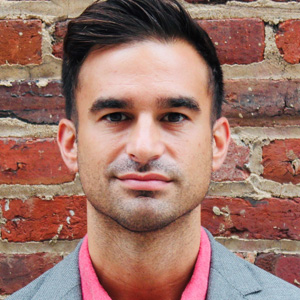
Derek is chief executive of Global Zero, the international movement for a world without nuclear weapons. A strategic communicator working at the intersection of catalytic advocacy, foreign policy, and social change, he has spent the last decade positioning Global Zero as a thought leader, a trusted intermediary among nuclear-armed states, and a provocative advocacy operation. He has a knack for identifying strategic opportunities and the right tactics that can push messages into the mainstream in order to shine a spotlight or apply pressure. In addition to developing organizational strategy and overseeing day-to-day operations, Derek also spearheads special projects—from coordinating sensitive track-1.5 initiatives to producing viral and award-winning creative content.
Derek is a recovering attorney with a background in international law. Before taking the helm at Global Zero, he worked to advance interfaith dialogue at the Parliament of the World’s Religions. He also worked to enhance access to justice, human rights, and rule of law at JUSTICE, the British section of the International Commission of Jurists in London.
I’m most excited to work on projects that… bring together strange bedfellows and break out of echo chambers.
I’m looking for partners that can help me… expand my imagination, tap into public zeitgeist, create compelling content, and channel outrage into action.
A moment when I felt most inspired in my work was… seeing our #NoRedButton campaign break through in the 2016 election, position nuclear dangers front-and-center for the American public during the third and final presidential debate and in the closing weeks of the campaign, and firmly entrench the issue of presidential sole authority all the way through 2020.
Innovations in my field I’m most excited to work on… explicitly name our weaknesses and blindspots, borrow from multiple disciplines, center justice in the work, and incorporate an intersectional approach.
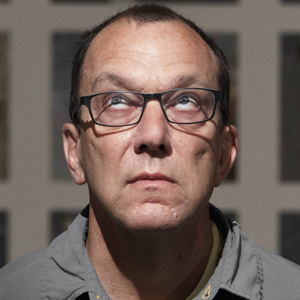
Paul is an artist using found and original photographs. His documentary subjects include the US nuclear arsenal, small town council meetings, and Homeland Security training sites. Since 2012 he has worked largely with sourced images on themes involving American culture, loss, and memory. He has recently expanded his practice into sculpture and collaborative interdisciplinary theater/visual art projects. Paul’s work has been included in Whitney Biennial and collected and exhibited by the Museum of Modern Art (New York), the San Francisco Museum of Modern Art, the Art Institute of Chicago, and many others. His work has been published in three monographs: Paul Shambroom: Picturing Power, Meetings, and Face to Face with the Bomb. He has received fellowships from the Guggenheim Foundation and the Creative Capital Foundation, among others. Paul was born in Teaneck, NJ, and lives in Minneapolis, where he is an associate professor in the Department of Art, University of Minnesota.
I am most excited to work on projects that… heighten awareness and encourage citizen engagement through art and creativity.
I am looking for partners that can help me… reach outside political bubbles through listening, compassion, and finding common humanity. A little humor doesn’t hurt, either.
A moment when I felt most inspired in my work was… regarding my nuclear weapons work, when I learned that a nun who was serving prison time for political activism kept a copy of my book in her cell.
Innovations in my field that I am most excited to work on… include the blurring of lines between art and activism, collaborations outside the traditional realms of art practice, and the best democratic potentials of social media (which must be defended).
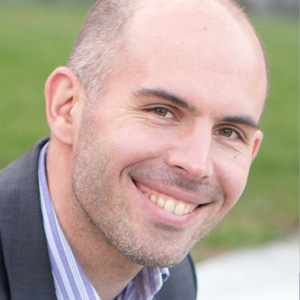
Rob is director of Signal, a program at the Harvard Humanitarian Initiative focused on applied research at the intersection of human security and emerging technology. Prior to joining Harvard, his career as a technologist and humanitarian involved field work in dozens of countries around the world and roles with Oxfam, Ushahidi, USAID, the World Bank, and as a White House Innovation Fellow. Rob has a degree in poetry and Eastern arts from Naropa University and is completing an MBA with the University of Illinois.
I am most excited to work on projects that… treat beneficiaries as partners. That make listening a feature, not a bug.
I am looking for partners that can help me… bring principles into practice.
A moment when I felt most inspired in my work was… seeing my team’s efforts in random presentations and citations and seeing how they contributed to other people’s inspiring work.
Innovations in my field that I am most excited to work on…. include human-computer interaction, blockchain, digital identity, teledemography, and mesh networks.
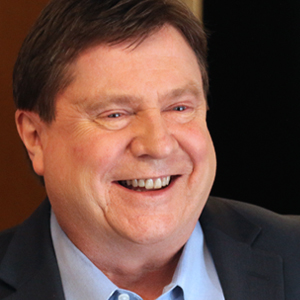
Jim is an expert in international security and a senior research associate and faculty at the Massachusetts Institute of Technology’s Security Studies Program. His research and writings focus on international security, particularly topics involving nuclear weapons. Jim has testified before the United States Senate and House of Representatives on issues of nuclear terrorism, Iran, and North Korea. He is one of a handful of Americans who has traveled to both Iran and North Korea for talks with officials about nuclear issues.
Jim is the international security contributor to the NPR program “Hear and Now,” and his comments and analysis have appeared in The New York Times, The New York Review of Books, The Washington Post, The Wall Street Journal, ABC, CBS, NBC, Fox, and numerous other national and international media outlets. Previously, Jim was executive director of the Project on Managing the Atom at Harvard University’s John F. Kennedy School of Government and a visiting scholar at the Center for Global Security Research at Lawrence Livermore National Laboratory. He received his PhD from the Massachusetts Institute of Technology.







